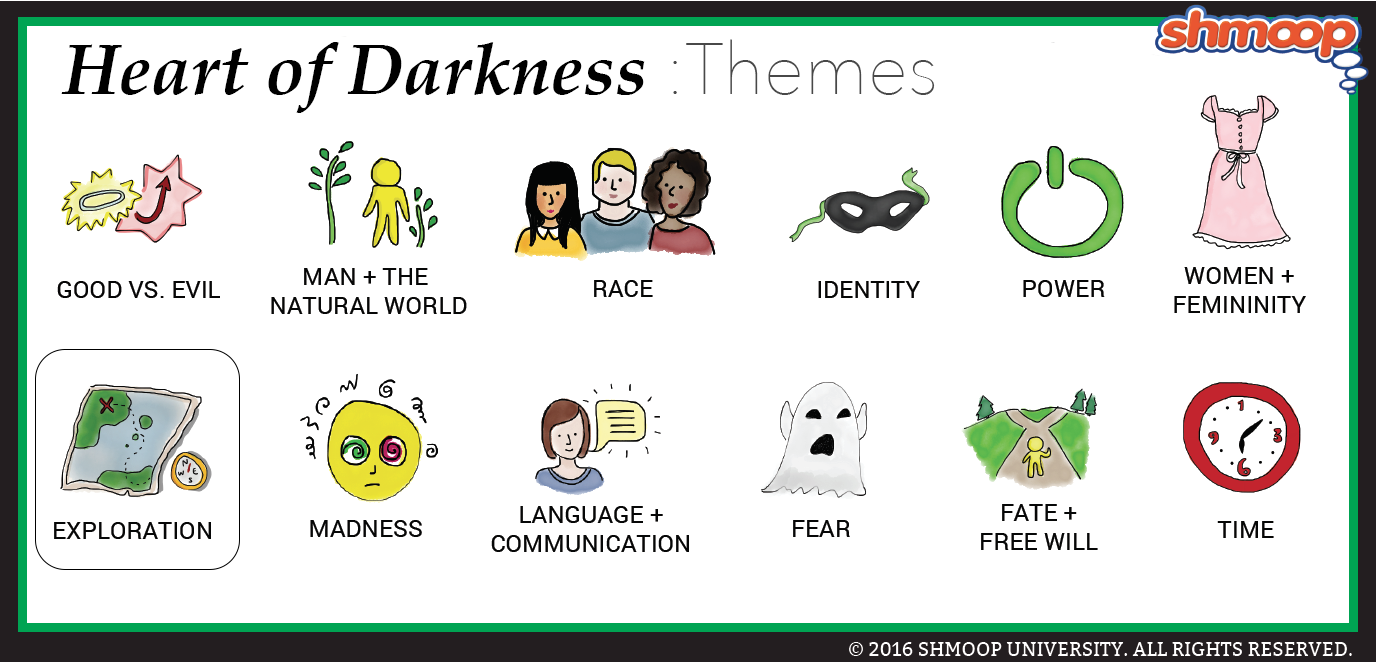 (Click the themes infographic to download.)
(Click the themes infographic to download.)
The Company's continuing mission: to explore strange new worlds; to seek out new life and new civilizations; to boldly go where no man has gone before. And … to brutalize and abuse the native Africans and lands in order to make huge profits off of ivory. Hm, it doesn't sound so noble when you put it like that, does it? Marlow and others like him might start off as starry-eyed idealists wanting to fill in the map, but, once that map gets filled in, their goals change: now it's not so much about finding new places as about making that last drop of profit from those new places that they can. Heart of Darkness puts a grim spin on the mythology of exploration—one that J. J. Abrams is probably not going to direct. (Although, that sounds truly awesome.)
Questions About Exploration
- What captures Marlow's curiosity about Africa? About Kurtz? What is similar about these two obsessions?
- Why does Marlow insist at first that he's not interested in Kurtz? Is he telling the truth at the time? Does he only get interested later?
- How does Marlow's curiosity compromise his integrity and bring about dire consequences? Or is his curiosity actually harmless?
- How does Marlow explore Kurtz? Is the human mind a legitimate path for exploration? How does this make his sense of right and wrong more flexible?
Chew on This
Marlow's journey up the Congo River parallels his exploration of the human psyche: as he plunges deeper into the African interior, he goes deeper into the nature of good and evil.
In Heart of Darkness, Conrad suggests that exploration is a negative force.